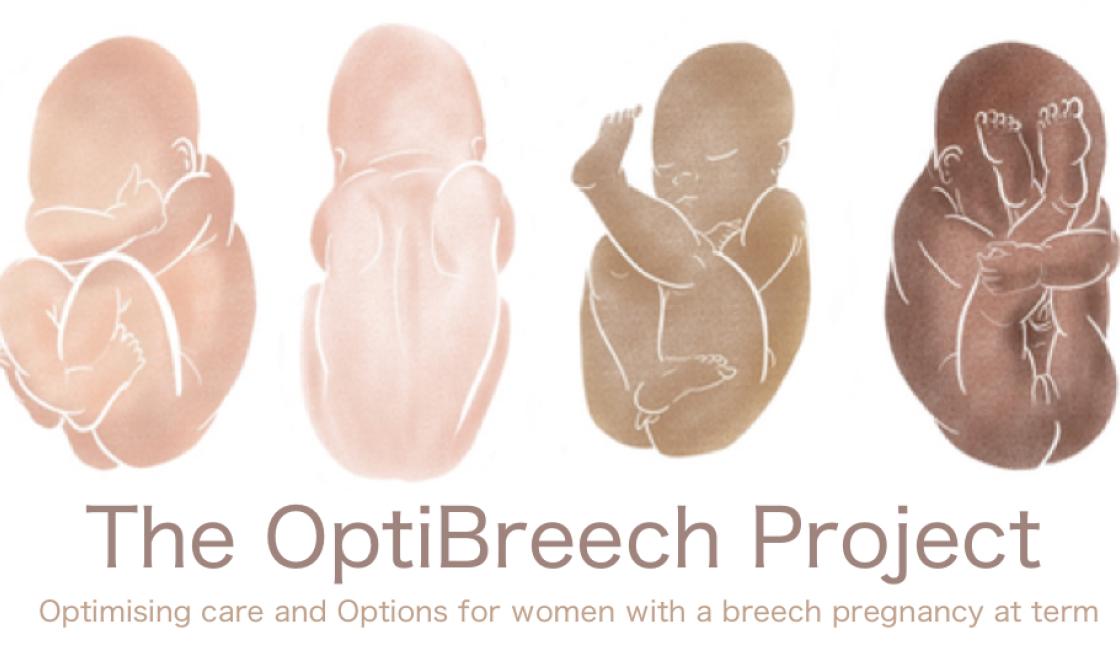Optimising outcomes and options for women with a breech pregnancy at term
Most babies are born head-first, but about 1 in 25 are in a bottom-down position (breech) after 37 weeks of pregnancy, and some are not detected until labour.
Most babies are born head-first, but about 1 in 25 are in a bottom-down position (breech) after 37 weeks of pregnancy, and some are not detected until labour.
These babies have some increased risk around the time of birth, so most are born by caesarean section. However this is also associated with some risks for the babies, for mothers and for future pregnancies. The method of childbirth is a very personal decision. Dr Shawn Walker will explore how to improve the safety of vaginal breech birth, focusing on the development of competence and expertise among midwives and obstetricians to manage uncommon events like breech births.

The study aims to investigate whether it is feasible to evaluate a new care pathway for women with a breech pregnancy. The OptiBreech care pathway includes:
• specialist leadership
• evidence-based training, and
• an active birth approach.
Women who have experienced breech pregnancies have asked for:
• more information about non-caesarean options; and
• reliable support from an experienced midwife, or obstetrician if a vaginal birth is planned.
These requests align with national policy to enable maternal choice. The model being tested is based on the best evidence of what could potentially improve the safety of vaginal breech births, as well as improve support for women who choose to give birth vaginally.
We do not know whether OptiBreech care is as safe and cost-effective as standard care. One way to find out is by comparing outcomes within each pathway in a clinical trial. Some important questions must be answered first to design a successful large-scale trial. This is called a ‘feasibility study.’ We will use routine data, interviews and surveys to determine:
• How many women might wish to take part in a large trial?
• Can we collect all of the information we need, and how much time does it take?
• How do women and staff feel about the OptiBreech care pathway?
• How might we determine what it costs to provide OptiBreech care?
• How many sites across the UK would be willing and able to participate?
Twelve sites from across England, Wales and Scotland will participate in the study, including Kingston University Hospital in south London. An independent Trial Steering Committee will consider outcomes from this initial study and advise on whether a large trial is feasible.
There are two lay members on the research team, who will sit on the Trial Steering Committee. There is also a patient and public involvement group (PPI) group with over 30 members from across the UK. In preparing the funding application, feedback was sought from service users. This included the Fast Track Review offered by NIHR Research Design Service London of the plain English summary, a review of the entire application by the Birth Trauma Association and meetings with local Maternity Voices Partnership groups.
Additionally, a PPI group was formed of women who had experienced a breech pregnancy in the UK within the last five years, with outcomes of birth after external cephalic version (a process by which a breech baby can sometimes be turned from buttocks or foot first to head first), caesarean section and vaginal breech birth represented. Invitations were circulated via social media. Over 30 women have indicated an interest in long-term involvement with the project, along with the leaders of the groups we contacted.
A summary of the proposal has also been presented at multiple breech training days, inviting discussion and written feedback from maternity care professionals. As the project develops, engagement events will be held with stakeholders, including service users, midwives, obstetricians, anaesthetists, neonatologists and commissioners.
The study is funded by an NIHR Fellowship. It was adopted by ARC South London in November 2020 and will be completed in August 2023.
Read more about the Optibreech study